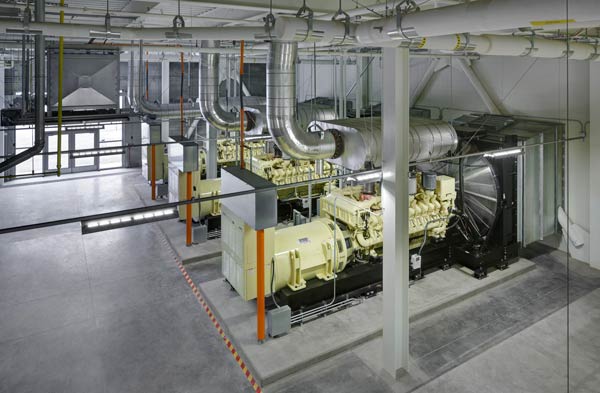The evolution of the generator industry has been so much that now there is no such technology that has not been accommodated in them. There are generators with higher fuel efficiency, low CO emissions, and low noise operation. There are various types of generators. But two of them are basics, Ablesales, electric powered, and the inverter generators.
A conventional generator is a device that has a fuel-powered engine with an alternator that has an electrical output as an alternating current. On the contrary, the inverter works on 3 phased cycles that produce ac at first, then dc, and again convert it to ac. All the types have their own advantages and disadvantages. Majorly, there are three fuels that are used in generators, they are diesel, gasoline, and propane.
Installation of a generator is a tricky task that requires expertise. Here are six precautions that you must keep in mind to avoid any hazard.
Selection of generators
There are various types of generators, as two are mentioned above. The selection of generators should be wise enough to justify your requirements. All types have their own specifications and working. For instance, if you want for home use and power consumption is less then, you should go for an inverter generator.
They save your input, less noise pollution, and less fuel required. But if you are installing for industrial purposes and it needs huge power consumption, then no one can beat diesel generators. If the requirement is for a portable generator, then you should go for mobile generators with a particular type of design. Every need will be justified by different types because they have their own pros and cons.
Electric hazards
Dealing with electricity is cumbersome and may cause fire or explosion as well. So, it must be handled with proper guidance and measures. It is a safe choice to call an electrician for the installation of a generator. Few precautions must be in mind during its installation; that is, never connect a generator directly to the electrical system of your building.
It may cause an explosion when the power supply fluctuates. Be aware that you never overload its capacity, and it may cause electric shocks. There must be proper wiring, proper insulation, and grounding. Keep the generator away from water and out of the rain. The person must wear all the gears while dealing with the installation process. He must keep a check that fuel tanks are full, no leakage and all the connections are to the point.
Measures when starting
There are few thumb rules which should be kept in mind. The person must verify all electrical connections are correctly connected and tight. He must check if the engine is filled with oil, the coolant tank with coolant, and the fuel tank with fuel. Most importantly, check if the fuel line is connected from the fuel tank to the engine or not, and the air filter indicator is green and can be operated.
He must have a prime fuel system (engine fuel systems without automatic prime functions). Verify if there are no leakages at any place. Make sure no engine or generator alarms exist. Now, the generator is ready to start, but carefulness is still the need of the hour. The person can start the generator and check if all parts are functioning as usual.
Proper ventilation
Whatever the type of generator is, all kinds of generators get heated up on continuous and long use. A Genset emanates exhaust fumes which contain venomous fumes like CO. Such gases can cause life threats and deaths. So, deciding the place for installation is also a significant point to keep in mind.
There must be enough aeration to release gases which ensures the unhindered flow of cold and ventilated air. The discharges must be in a direction away from populated regions. There might also be a need for coolant outside the Genset if the power produced is enormous or inside it as a liquid coolant. These coolants help in cooling down the heat produced by the generator.
Fire and explosion Hazards
Fuel used in generators is very explosive so it must be dealt with at most precautions. Even if a little spill of fuel gets in touch with the spark of the generator, it can cause an explosion and a high level of damage to life and property. So, keep the fuel away from the generator and at a place with low temperature.
All precautions must be taken care of while refuelling the engine. Make sure that you never refuel the tank when the engine is even a little warm. It may cause fire immediately. Clear up any spilt fuel immediately and do not start the generator until the fuel completely evaporates from the spot.
Timely Maintenance
Like all the electrical devices require proper maintenance, so does the generator. Batteries should be checked regularly if they have power or need replacement. Most batteries have a lifespan of a year, so they are required to be replaced in a given time. The engine should be seen if it has the same rpm and output efficiency as at the start, or it requires oiling and greasing.
The internal parts of the engine might get rusted or damaged with friction. They may demand repairing or replacement at regular intervals. If these parts are not taken care of, they may cause massive damage by even exploding, catching fire, and electric shocks.
Conclusion
With the rise in technology and competition, generators are available in many variations. The companies are very competitive to provide maximum comfort in use, in portability, price, emissions, size, design, and efficiency. The generators do not require a lot of maintenance as well and are worth a penny spent.
A customer with the demand for high power generation should definitely go for a diesel generator. Many technologies have been invented, but they couldn’t compete with generators. They have always been proven the best match in their sector and satisfied the customer for years.

